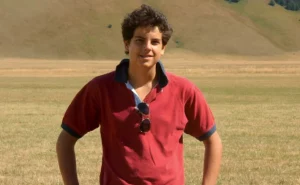

News
On the way to the Youth Jubilee: Making your pilgrimage meaningful
The Youth Jubilee is approaching – perhaps you are one of the millions of pilgrims travelling to Rome this year? If so, here are 5 helpful tips to help you prepare. But even if you are not there in person, you can go on your own pilgrimage at home: check with your diocese to find out which special places of pilgrimage have been designated by your bishop for the Holy Year.
- 1. Clarify your why: Why do you want to go on a pilgrimage?
- 2. Clarify your goal: Where is your path leading?
- 3. Pack consciously: What do you need on your journey?
- 4. Shape your journey
- 5. Holy Year Special: Indulgence as a spiritual gift
1. Clarify your why: Why do you want to go on a pilgrimage?
A pilgrimage is not an ordinary holiday trip, because it begins with an inner step of turning to God and repenting. Be aware of what your pilgrimage should express. In what ways do you want to grow? How do you want to relate to God?
- Are there uncertainties in your life? In your studies, your job, your family? Do you want to ask God for something?
- Do you want to thank God for something or do penance?
Write it down specifically: What is your WHY?
2. Clarify your goal: Where is your path leading?
Whether you are making a pilgrimage to Rome or to a local place, it is important that you consciously choose and shape your goal.
Many events await you in Rome for the jubilee. Find out in advance and plan conscious stops in addition to the major events:
- Relics of your favourite saints
- Participation in Holy Masses, confession and prayer times
- Passing through the Holy Doors
3. Pack consciously: What do you need on your journey?
Good preparation starts with your backpack. Pay attention to your physical and spiritual needs:
- Comfortable shoes, water bottle, sun and rain protection,appropriate clothing (shoulders & knees covered)
- Pen & notebook for personal thoughts
- And very important: your rosary!
4. Shape your journey
The external movement should also move you internally. Shape your pilgrimage spiritually:
- Pray the rosary or litanies together along the way
- Sing pilgrim songs
- Plan times of silence and sharing
- Keep returning to your WHY: What brought you on this journey?
5. Holy Year Special: Indulgence as a spiritual gift
‘Indulgence is a sign that God’s love is greater than any sin.’ – Pope Francis
A central element of the Holy Year is the plenary indulgence: it is a spiritual gift from the Church that helps us to continue to heal inwardly after the forgiveness of our sins.
When we confess, God forgives our sins, but the consequences of our mistakes remain within us, just as when we still feel weak after recovering from the flu.
The indulgence helps us overcome these “temporal punishments of sin” because we consciously move toward God: through prayer, works of charity, sacraments, or, for example, a pilgrimage. It is as if God were saying: “I see your good will and I give you strength to begin anew.”
An indulgence is therefore not a free pass, but a sign of God’s love and mercy, who accompanies us on the path to holiness. In it, it becomes visible that our faith is holistic. It concerns both soul and body.
Through concrete action, we show what we believe and that God is truly at work in it.
To receive a plenary indulgence, you need:
- True repentance for your sins. You truly want to change your life.
- Reception of Holy Confession (one confession is sufficient for multiple indulgences)
- Reception of Holy Communion
- Prayer for the Pope’s intentions (the Church recommends the Creed, the Our Father, and the Hail Mary)
Paths to Indulgence
1. Go on a pilgrimage to Rome or Jerusalem
2. Pray at a holy place near you that has been designated a Jubilee Church
3. Do good deeds
- Help sick or elderly people
- Visit prisoners
- Give something to the poor that you don’t like to give away
- Spend time with lonely people
- Give up something for an extended period (e.g., social media or sweets)
- Fast or pray – especially on Fridays
4. If you can’t travel
Even if you are sick or can’t travel, you can still receive an indulgence – if you pray from your heart and connect with others, e.g., via radio or livestream.
Pilgrimage means more than just travelling
Whether you go to Rome or stay at home, a pilgrimage is a journey towards God. It begins in your heart, becomes tangible along the way and finds its fulfilment in an encounter with Christ.
Set out with a clear purpose, a spiritual goal and an open heart.

YOUCAT Digital
Discover our digital products, which will help you to grow in faith and become missionaries yourself.




